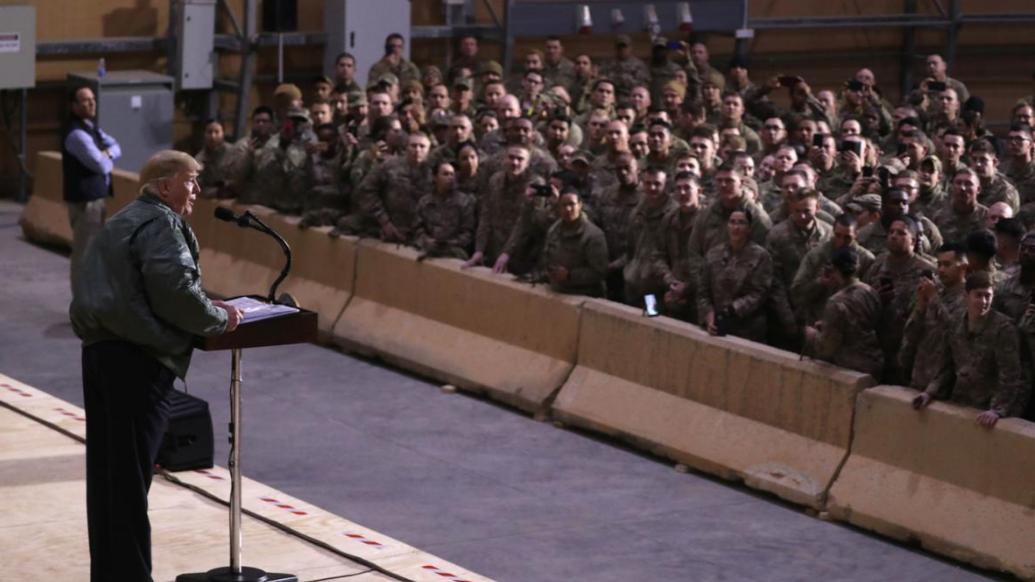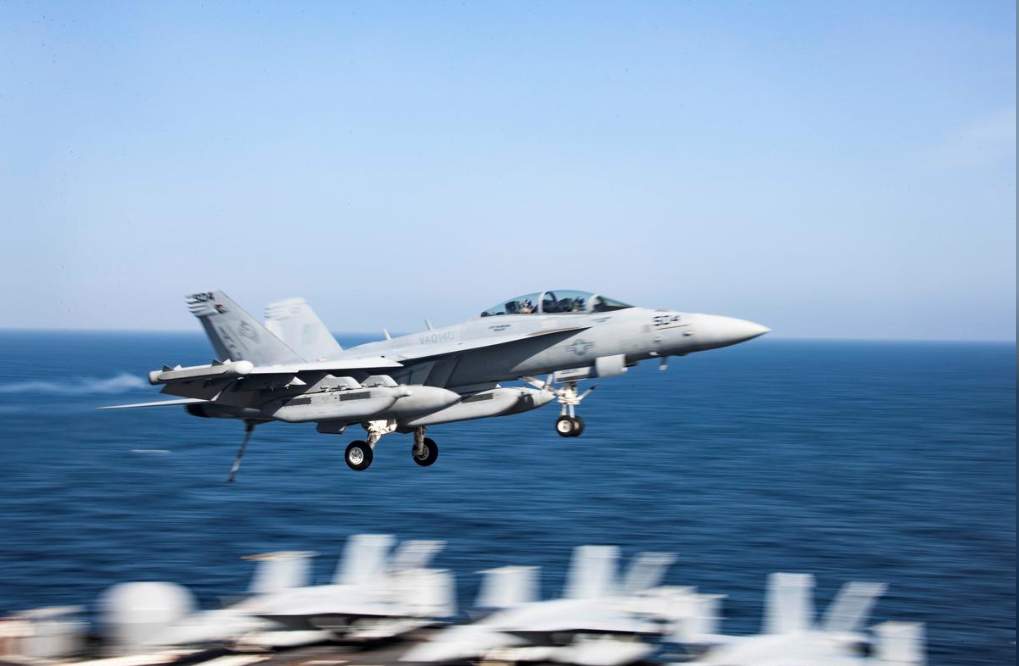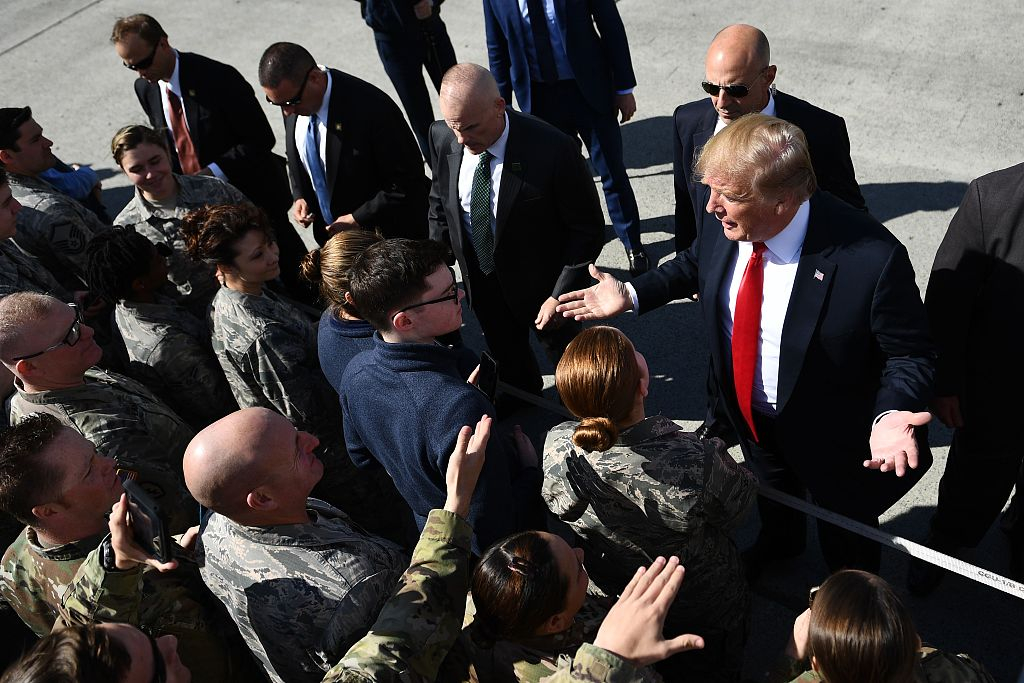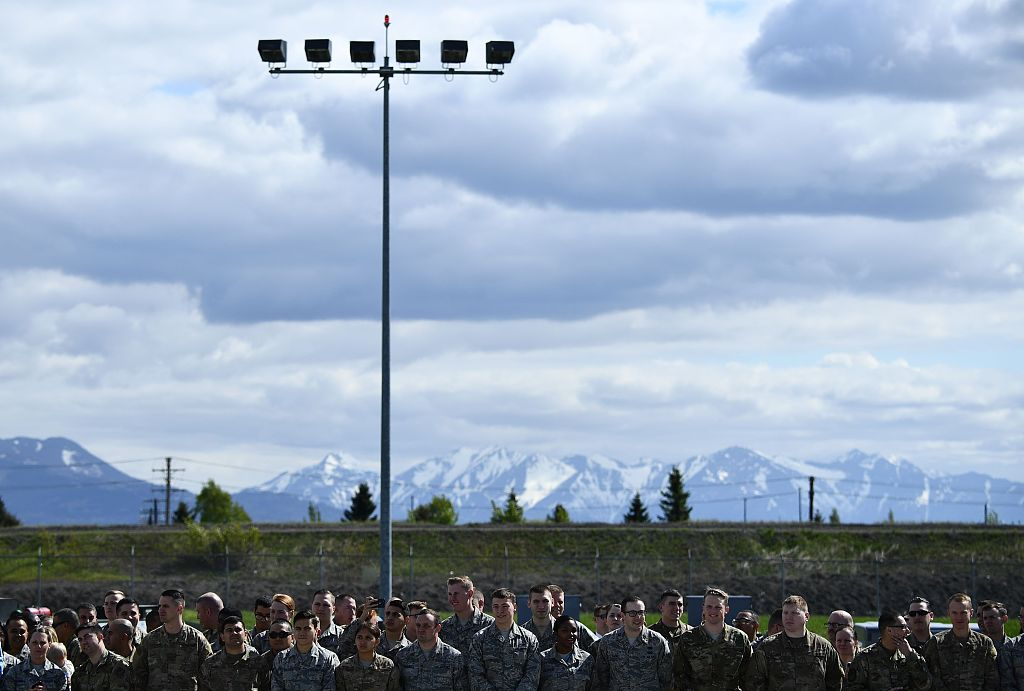
Middle East
14:13, 25-May-2019
U.S. deploys more troops to Middle East to counter Iran 'threat'
CGTN

The United States on Friday announced the deployment of 1,500 troops to the Middle East, describing it as an effort to bolster defenses against Iran as it accused the country's Revolutionary Guards of direct responsibility for this month's tanker attacks.
President Donald Trump's administration also invoked the threat from Iran to declare a national security-related emergency that would clear the sale of billions of dollars' worth of weapons to Saudi Arabia, the United Arab Emirates and other countries without required congressional approval.
The actions were the latest by the Trump administration as it highlights what it sees as a threat of potential attack by Iran, and follows decisions to speed the deployment of an aircraft carrier strike group as well as send bombers and additional Patriot missiles to the Middle East.

An F/A-18F Super Hornet from the "Patriots" of Electronic Attack Squadron (VAQ) 140 flies over the U.S. aircraft carrier USS Abraham Lincoln (CVN 72), in Arabian Sea, May 22, 2019. /Reuters Photo
An F/A-18F Super Hornet from the "Patriots" of Electronic Attack Squadron (VAQ) 140 flies over the U.S. aircraft carrier USS Abraham Lincoln (CVN 72), in Arabian Sea, May 22, 2019. /Reuters Photo
The deployments, decried by Iran as escalators, have come amid a freeze in direct communication between the United States and Iran that has raised concerns about the increasing risk of an inadvertent conflict.
Trump, however, described the latest deployments as defensive, in nature. The 1,500 troops include personnel manning missile defense systems, aerial surveillance to spot threats and engineers to fortify defenses. It also includes a fighter jet squadron.
"We want to have protection in the Middle East. We're going to be sending a relatively small number of troops, mostly protective," Trump said as he left the White House for a trip to Japan.
The decision on troops marks a reversal of sorts for Trump, who only on Thursday said he thought no more forces were needed. Trump has sought to detangle the U.S. military from open-ended conflicts in places like Syria and Afghanistan.

U.S. President Donald Trump (R) greets members of the military on the tarmac at Elmendorf Air Force Base in Anchorage, Alaska, May 24, 2019. /VCG Photo
U.S. President Donald Trump (R) greets members of the military on the tarmac at Elmendorf Air Force Base in Anchorage, Alaska, May 24, 2019. /VCG Photo
The deployment is relatively small compared with the about 70,000 American troops now stationed across a region that stretches from Egypt to Afghanistan. In addition, some 600 of the 1,500 "new" troops are already in the Middle East manning Patriot missiles, but will see their deployments extended.
Still, the Democratic lawmaker who heads the House Armed Services Committee, Adam Smith, said the deployment "appears to be a blatant and heavy-handed move to further escalate tensions with Iran."
Eager to avoid escalation with Iran amid already heightened tensions, Pentagon officials stressed the defensive nature of the deployment in a news briefing and noted that none of the troops would be heading to hot spots like Iraq or Syria.

Members of the U.S. Air Force stand on the tarmac at Elmendorf Air Force Base in Anchorage, Alaska, during a refueling stop as the U.S. president travels to Japan, May 24, 2019. /Reuters Photo
Members of the U.S. Air Force stand on the tarmac at Elmendorf Air Force Base in Anchorage, Alaska, during a refueling stop as the U.S. president travels to Japan, May 24, 2019. /Reuters Photo
At the same time, the U.S. State Department informed Congress that it will go ahead with 22 arms deals worth some eight billion U.S. dollars, congressional aides said, sweeping aside a long-standing precedent for congressional review of such sales.
Some lawmakers and congressional aides had warned earlier this week that Trump, frustrated with Congress holding up weapons sales like a major deal to sell Raytheon Co precision-guided munitions to Saudi Arabia, was considering using the loophole to go ahead with the sale.
(Cover image: President Donald Trump delivers remarks to U.S. troops in an unannounced visit to Al Asad Air Base, Iraq, December 26, 2018. /Reuters Photo)
Source(s): Reuters

SITEMAP
Copyright © 2018 CGTN. Beijing ICP prepared NO.16065310-3
Copyright © 2018 CGTN. Beijing ICP prepared NO.16065310-3